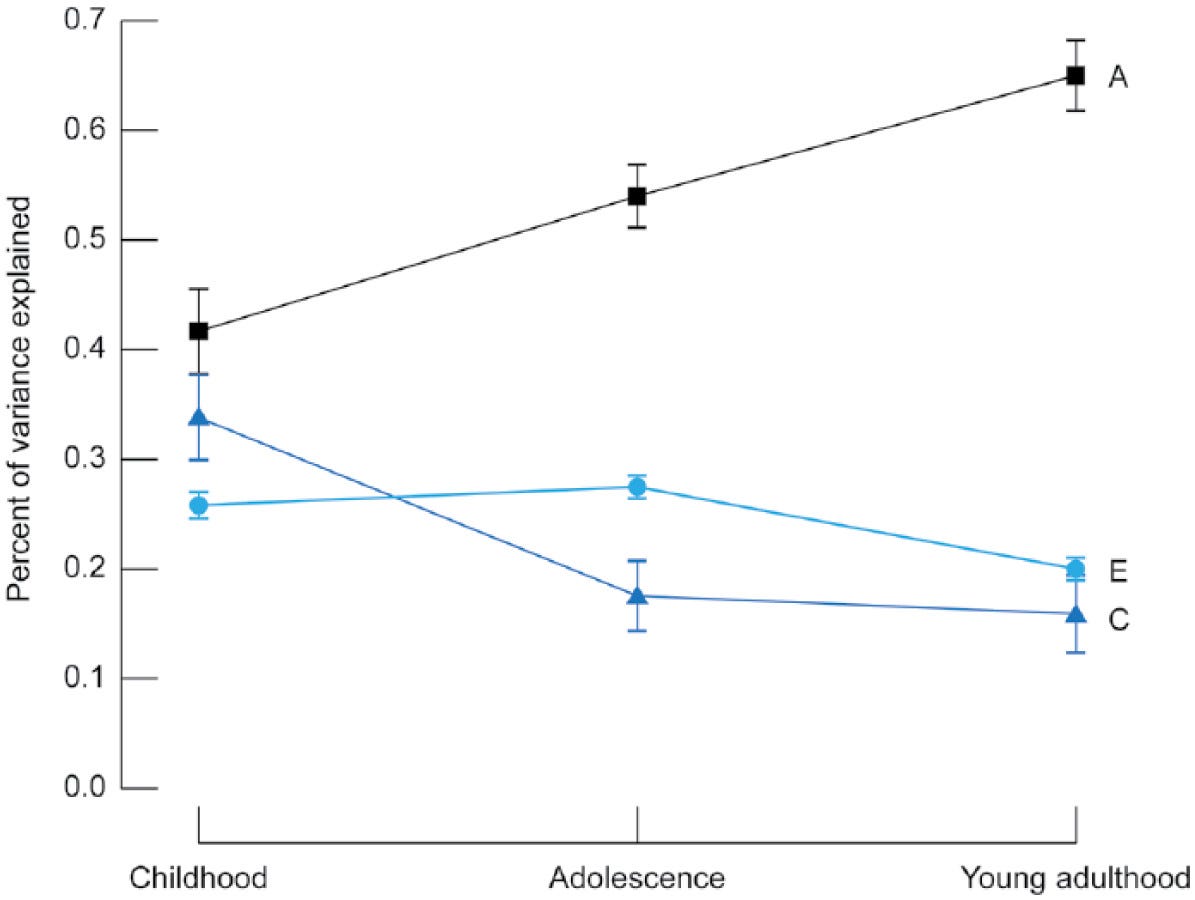The Heritability of IQ Increases With Age
A counterintuitive but highly replicable finding

The graph below shows one of the most counterintuitive discoveries of behavior genetics: The heritability of IQ increases with age, while the effect of the shared family environment dwindles. In other words, when it comes to cognitive ability, nature becomes more important as we get older, nurture less.

Why does the heritability of IQ increase with age? It’s not completely known. One possibility, however, is that as people get older, they gain more and more control over their environments. They therefore begin selecting, modifying, and creating environments that align with their preferences and talents - preferences and talents shaped to a significant degree by their genes. This creates a feedback loop, where the environment increasingly reinforces genetically influenced traits.
The graph comes from a classic paper by Robert Plomin and colleagues titled “Top 10 Replicated Findings From Behavioral Genetics.” Here’s the abstract:
In the context of current concerns about replication in psychological science, we describe 10 findings from behavioral genetic research that have replicated robustly. These are “big” findings, both in terms of effect size and potential impact on psychological science, such as linearly increasing heritability of intelligence from infancy (20%) through adulthood (60%). Four of our top 10 findings involve the environment, discoveries that could have been found only with genetically sensitive research designs. We also consider reasons specific to behavioral genetics that might explain why these findings replicate.
You can request a free copy from the authors here.
Follow me on Twitter/X for more psychology, evolution, and science.
Coming Soon to the Nature-Nurture-Nietzsche Newsletter…
How Inflated Performance Feedback Shortchanges Women
The N3 Newsletter Linkfest for May 2025
My appearance on Yascha Mounk’s Good Fight podcast
A new series on the problem of free will
How You Can Support the Newsletter
If you like what I’m doing with the Nature-Nurture-Nietzsche Newsletter and want to support my work, there are several ways you can do it.
Like and Restack - Click the buttons at the top or bottom the page to boost the post’s visibility on Substack.
Share - Send the post to friends or share it on social media.
Upgrade to Paid - A paid subscription gets you:
Full access to all new posts and the archive
Full access to exclusive content such as my “12 Things Everyone Should Know” posts, Linkfests, and other regular features
The ability to post comments and engage with the N3 Newsletter community.
If you could do any of the above, I’d really appreciate it. It’s the support of readers like you that keeps this newsletter going.
Thank you!
Steve


The rise of heritable IQ with age makes sense when we consider the constraints posed by family and siblings. These no longer serve a purpose. I wonder if the rise of heritable IQ correlates with loss of family members. Due to a genetic disease I lost 2 brothers in early adult years and I expanded into "their" family territory. I stepped up and out. I also see this as a desire to keep their spirit alive, but I cultivated competencies that felt familiar but had been dormant in me.